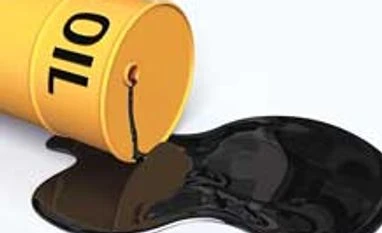Oil prices extended losses in Asia today on expectations Greece will miss a key debt repayment later in the day and edge closer to a eurozone exit, analysts said.
US benchmark West Texas Intermediate (WTI) for August delivery fell 23 cents to $58.10 while Brent crude for August eased 15 cents to $61.86 in late-morning trade.
WTI sank $1.30 and Brent lost down $1.25 yesterday.
The move means Athens is unlikely to agree a deal to unlock bailout funds to repay an IMF debt by the end of today, putting it in default and in danger of crashing out of the eurozone.
Top European leaders including Germany's Angela Merkel France's Francois Hollande and Italy's Matteo Renzi called on the Greek people to vote for the creditors' proposals, warning a "no" would mean exiting the eurozone.
"This display of volatility comes from the uncertainty with Greece," said Daniel Ang, investment analyst with Phillip Futures in Singapore.
Ang said with the US dollar holding firm due to investors viewing it as a safe haven, oil prices would remain pressured. A stronger greenback makes dollar-priced crude more expensive for buyers using weaker currencies.
Dealers were also waiting to see if Iran and major world powers can reach a deal on curbing Tehran's nuclear programme by the end of Tuesday, a deadline set by both sides.
Such an agreement would allow Western powers to remove sanctions, paving the way for more Iranian crude to hit the already oversupplied international market.
US benchmark West Texas Intermediate (WTI) for August delivery fell 23 cents to $58.10 while Brent crude for August eased 15 cents to $61.86 in late-morning trade.
WTI sank $1.30 and Brent lost down $1.25 yesterday.
More From This Section
Crude tracked losses in global equity markets yesterday after Greek Prime Minister Alexis Tsipras stunned the world at the weekend by breaking off bailout reform talks and calling for a referendum on austerity conditions demanded by its creditors.
The move means Athens is unlikely to agree a deal to unlock bailout funds to repay an IMF debt by the end of today, putting it in default and in danger of crashing out of the eurozone.
Top European leaders including Germany's Angela Merkel France's Francois Hollande and Italy's Matteo Renzi called on the Greek people to vote for the creditors' proposals, warning a "no" would mean exiting the eurozone.
"This display of volatility comes from the uncertainty with Greece," said Daniel Ang, investment analyst with Phillip Futures in Singapore.
Ang said with the US dollar holding firm due to investors viewing it as a safe haven, oil prices would remain pressured. A stronger greenback makes dollar-priced crude more expensive for buyers using weaker currencies.
Dealers were also waiting to see if Iran and major world powers can reach a deal on curbing Tehran's nuclear programme by the end of Tuesday, a deadline set by both sides.
Such an agreement would allow Western powers to remove sanctions, paving the way for more Iranian crude to hit the already oversupplied international market.
)